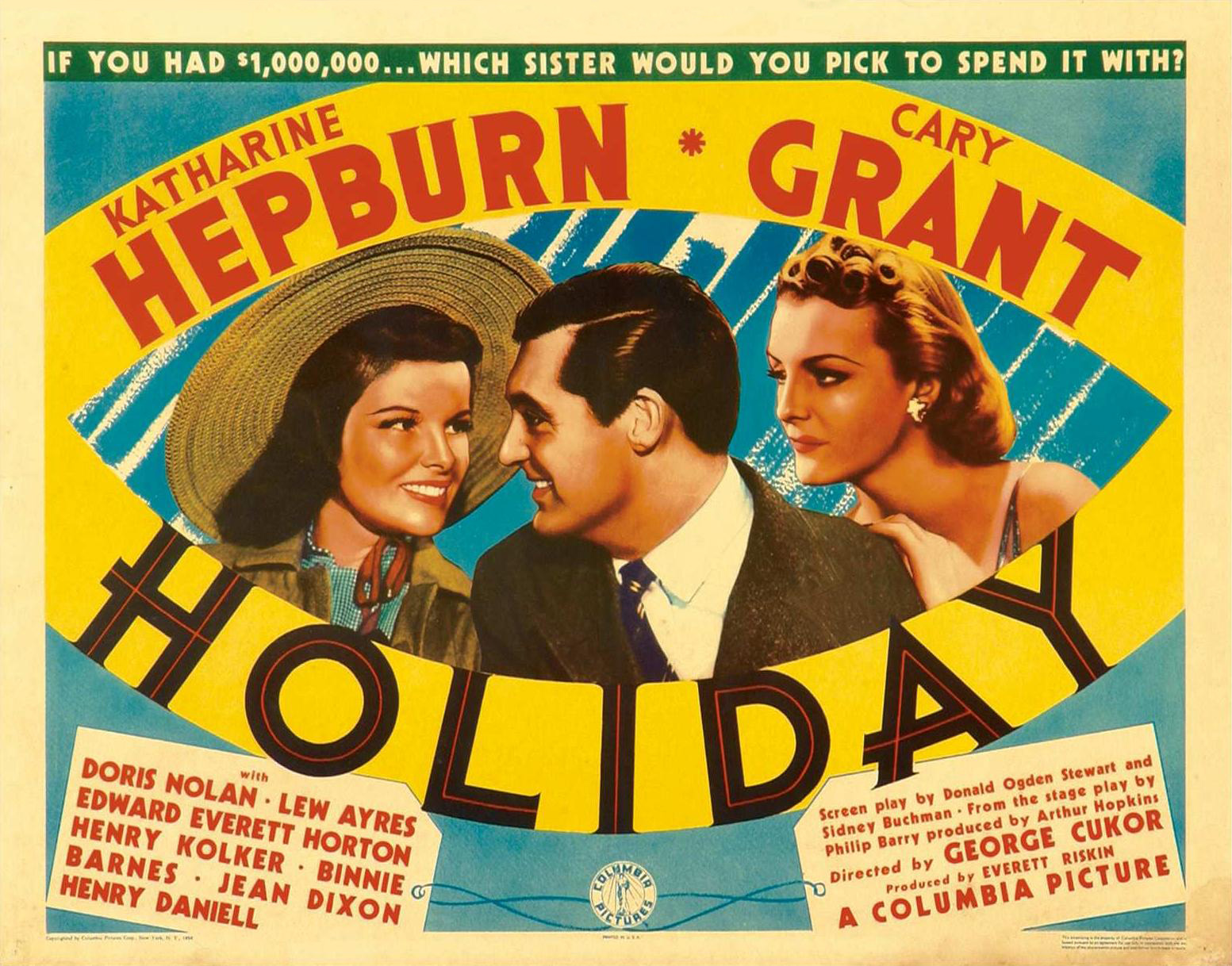Episode 15 of 52 as Anne Marie screens all of Katharine Hepburn's films in chronological order.
In which Katharine Hepburn is named Box Office Poison, which might be the best thing that could have happened to her.

WAKE UP! HOLLYWOOD PRODUCERS
Practically all of the major studios are burdened with stars--whose public appeal is negligible--receiving tremendous salaries necessitated by contractual obligations...
Among these players, whose dramatic ability is unquestioned but whose box office draw is nil, can be numbered Mae West, Edward Arnold, Garbo, Joan Crawford, Katharine Hepburn, and many, many others... Hepburn turned in excellent performances in 'Stage Door' and 'Bringing Up Baby' but both pictures died."
Reading that “wake up call” on the morning of May 3rd, 1938 had to sting. The Manhattan Independent Theatre Owners Association bought a full-page ad in The Hollywood Reporter and the Independent Film Journal to air its grievances, and the effects for Kate were immediate. Here’s how quickly the dominoes fell...
- May 3rd, 1938: The Hollywood Reporter and Independent Film Journal run the ad.
- May 4th, 1938: Kate buys out her contract with RKO for $200,000.
- May 12th, 1938: Kate turns 31.
- May 16th, 1938: Time Magazine publishes an article titled “DEAD CATS” interviewing the stars listed in the Box Office Poison ad. Says Kate, “They say I'm a has-been...If I weren't laughing so hard, I might cry.”
- June 15th, 1938: Holiday premieres. Columbia runs ad campaign asking, “Is it true what they say about Hepburn?” The audience’s apparent response: Yes.
When Holiday was released, it quickly drowned in its star’s now infamous reputation. Really that’s a pity, because the movie’s delightful.

Hepburn again teams up with director George Cukor and Cary Grant. Grant plays Johnny Case, a free spirit engaged to a millionaire’s stuffy daughter, Julia Seton (Doris Nolan). Over the holidays, Case meets Doris’s sister Linda (Kate), the black sheep of the white collar family. Sparks fly, laughter bubbles, and Johnny begins to question both his engagement and his place in high society.
It’s easy to miss or dismiss Holiday, sandwiched as it is between two of the Hepburn canon classics. However, though it lacks the manic energy of Bringing Up Baby and the Jimmy Stewart of The Philadelphia Story, Holiday remains a great example of star chemistry. Without the constant cacophonous distraction of dogs and leopards and bones (oh my!), Grant and Hepburn have only their sparkling personality and wit on which to rely. Fortunately, they have both in spades:
One joy of “A Year With Kate” has been watching Hepburn’s acting talent grow. In Morning Glory she began to harness voice control. In Alice Adams she learned empathy. In Stage Door her star quality blossomed. Holiday confirms what Bringing Up Baby hinted at: Kate has great comedic timing. She owes that in no small part to Cary Grant. Grant is a one man Vaudeville school. He can deadpan, he can double take, and his line readings have such a specific rhythm that I swear you could waltz to them. Kate could already deliver barbs, but with Grant she establishes the give-and-take patter of the great comedy duos. For an actress supposedly too serious for comedy, she’d developed a good sense of humor.
Kate needed more than a sense of humor to survive her inglorious exit from Hollywood. If there is any one thing that defines Katharine Hepburn’s legend (besides a certain Irishman), it is the story of her Box Office Poison defeat and subsequent glorious career revival. In retrospect, it feels strange that the lowest point of her career came during a year when she gave two performances that would later become classics. The reality is a little less dire than the legend though; when Kate left RKO, some studios expressed interest in picking her up. More importantly, her friend, playwright Philip Barry, was writing a play for her that was set to open in New York just a year later: The Philadelphia Story.

 Previous Weeks: A Bill of Divorcement, Christopher Strong, Morning Glory, Little Women, Spitfire, The Little Minister, Break of Hearts, Alice Adams, Sylvia Scarlett, Mary of Scotland, A Woman Rebels, Quality Street, Stage Door, Bringing Up Baby,
Previous Weeks: A Bill of Divorcement, Christopher Strong, Morning Glory, Little Women, Spitfire, The Little Minister, Break of Hearts, Alice Adams, Sylvia Scarlett, Mary of Scotland, A Woman Rebels, Quality Street, Stage Door, Bringing Up Baby,
Next Week: The Philadelphia Story - In which Katharine Hepburn wins it all back and then some